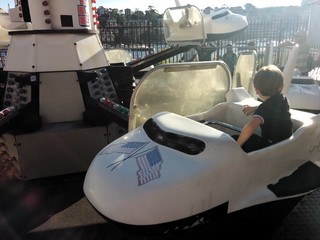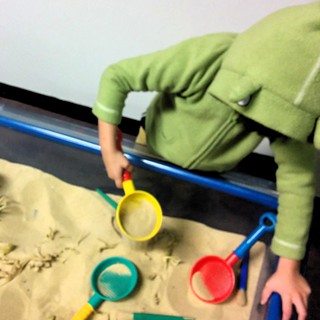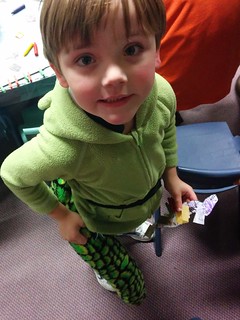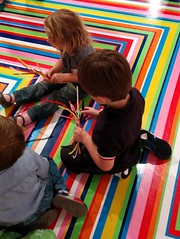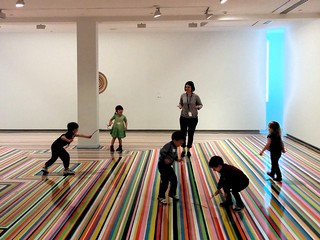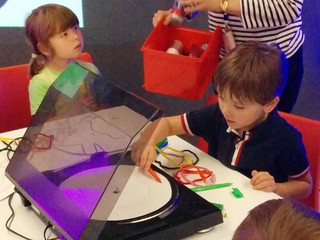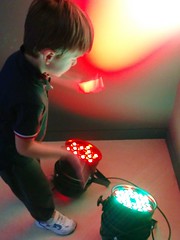Answers to my own end of year prompts.
Three moments of 2014
1. January, and deep night in my living room. My induction has taken effect, nineteen days (yes, one, nine) after my due date and she will be born in four hours. I have rarely spent time in my living room in the darkness and I labour in the glow of quite a few LEDs. My life is measured three minutes on and one minute off: in between contractions, we work down our mental packing checklist, and I walk and walk.
2. June, and deep night over the Pacific Ocean, 10km up in the air and about 1000km from any significant features on the map (we were south of Hawaii), most of the plane asleep around me, including, incredibly, my five month old baby who I have nonsensically taken on a business trip to the United States. My seat is reclined and I reached to close my window shade behind me. I partially dislocate my shoulder joint and spend ten seconds gazing into the vortex of getting a non-covered pre-existing condition incurred on a plane treated in the United States. Then my shoulder joint goes back into place. I spend some time awake afterwards.
3. August, sunshine over Thredbo. I am on the magic carpet — Syd’s Snow Runner — riding up to the easiest run, so shallow that when I am on the run I keep having to use my poles to push myself along. There are young eucalypts across the creek to my left. I am smiling because it is my first day of skiing and I haven’t fallen over constantly and when my instructor looks at me she says things like “you have good balance!” rather than “you really really try hard”.
Bonus:
Also August, standing in a crowded underwater tunnel at the Sydney Aquarium, really really pissed off and seeing the sharks swim around me and thinking that no, I absolutely am not in any way done with SCUBA, not even close.
Three meals of 2014
1. April, Café Sydney. I can’t remember for the life of me what I ate. (Maybe pork belly?) But the point is, this is our yearly tradition. Instead of birthday presents, we go out for lunch at a restaurant of finer quality than we usually do some time between our birthdays in February and April.
This tradition was about to be killed off at all of three years in, because of the new baby. But unexpectedly, the new baby had a childcare place at three months old. I was very ambivalent about it, but it did get me to this lunch with Andrew, the first time A and I had ever been in a different suburb. (To this day, we’ve not spent a night apart.)
2. October, a Sydney Picnic Co picnic with Andrew on Cockatoo Island, which turns out to not have great seating if you aren’t camping, so we balanced oddly on a steep hill. Those picnics, in addition to being expensive, are really really huge, so it’s basically a day’s worth of eating. But they really are delicious scandalously expensive enormous picnics. I think the Le Dauphin has spoiled me for any other cheese.
3. The chicken, fig and quinoa salad at one of my local cafes, which I’ve had a few times. I think this is the first year I’ve had quinoa, which I feel is a bit embarassing (I think of myself as reasonably adventurous with food, and I am in that I like most things, where I fall down is trying them in the first place). There’s no single visit to the cafe that stands out, but the salad is memorable.
Three photos of 2014
The number one photo of 2014 is a photo I haven’t put on the web and won’t: a photo of me seconds after my daughter was born (she’s curled up in my arms, blue, with the cord still alive) with an expression of “WHAT THE HELL? THIS IS NOT HAPPENING” on my face. If you know me well, ask me to show it to you some day.
Here’s some runners up:
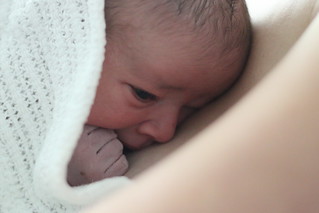
My daughter’s face, when she was an hour old. She already looks like herself.
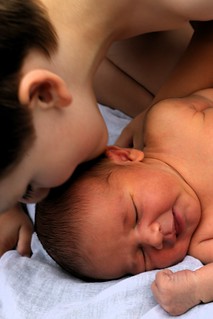
One of the earlier photos of my children together, when my daughter was two days old and still rosy, and apparently feeling pretty pleased with the world somehow.

One of many December storms bears down from Rozelle.
Three pleasures of 2014
1. For all but eight days and nine hours of 2014, I wasn’t pregnant. This is so amazing I can’t even begin to explain. I first learned the details of pregnancy from reading one of Sheila Kitzinger’s pregnancy guides (probably The Complete Book of Pregnancy and Childbirth) that my mother had, when I was seven and eight. I was fascinated. I learned so many things from it, from what episiotomies are to simple genetics (as it applies to blood typing) to the various breech presentations, all sorts of things.
While being pregnant was an interesting finale to this nearly lifelong project of reading about it, essentially every other part of the experience sucked. The first time sucked because it was so medicalised, and the second time sucked because I had a non-stop three year old to look after, and because I had an anterior placenta and couldn’t really touch the fetus or feel her all that much and because organising labour childcare was, no kidding, a huge undertaking and massive emotional journey. (Suddenly I sympathise with social inductions a lot more.)
Anyway, that’s really a 2013 reflection. But from my first post-birth shower after A was born, in 2014 I wasn’t pregnant any more and I sure did enjoy all that stair-climbing and walking down the street and being able to get into and out of cars in narrow parking spots and into and out of public toilet stalls and all the other non-pregnant accomplishments of the year.
2. Losing arguments to my older kid when I am definitely for sure right. For example, I cannot win an argument with him about when his birthday is, what day tomorrow is, which way is north, or what the rules of any game are. His bush lawyer skills are very annoying on issues like bathtime and whether watching three Pixar movies in a single day counts as “a lot” of TV or merely “some” TV, say, but on the simple clear facts of the world that he categorically denies, they’re usually fun.
3. Many many things about babies that I’d forgotten once and am already forgetting again. I enjoy babies a lot, contrary to my expectations prior to having them. (I thought I was having kids in order to have a two year old. Not so much.) The one that I always think of is the link between their breathing and their attention. Huff-huff-huff as the baby stares at coloured lights, or learns to work its hand.
I also got an odd pleasure from realising that while I love babies, I don’t miss the baby when the child gets older. So I didn’t feel as ambivalent about the disappearance of baby things as they marched off one by one in A than I did the first time when V was a baby. I am happy to have the time, and then for it to be done as well.
Three news stories from 2014
1. Again with 2013 for a moment: I recall that a frequent style of commentary following the Federal election in September 2013 was “the incoming Abbott government knows this is a centrist social democracy, stand down from the panic station, there will merely be tinkering at the margins.”
So my first story is the May 2014 budget, which I hardly think is tinkering at the margins, and the ensuing year in Federal politics spinning around whether it will pass. I won’t make predictions; I notice that the predictions of people who regard themselves as politics tragics or even insiders make terrible ones. I was relieved that other people also thought it was terrible.
2. The death of Reza Berati. The pregnant women and new mothers in offshore refugee detention. I don’t have a lot to add about Australia’s treatment of refugees. I give money to organizations that I hope are better placed than I am to make the best changes.
3. The Lindt cafe siege. I’ve been to that cafe three or four times; one of them was the night of my wedding. (I can’t recall, but I think we got there after it had closed for the evening.) Katrina Dawson’s youngest child is the same age as my eldest. I can think about it only in little fragments.
Three sensations from 2014
1. The smells of the baby’s head. A lot of people sniff babies in order to smell some special baby smell that I’ve never really picked up on (babies smell of milk and poo to me), but after a while she started napping with her father in the mornings, and so for a while she smelled disconcertingly of him. Later, she began to smell of my perfume oils. Always amusing.
2. The taste of Rekorderlig ciders. Which, sure, is mainly the taste of sugar. But we drank Rekorderlig many nights as an indulgence while Andrew was on his six weeks of paternity leave+annual leave, so I have a fondness for it (in addition to generally liking sickly sweet things). It tastes of long lazy days inside the house with a newborn that did a hell of a lot of sleeping.
3. The smell of BPAL’s Vice (“a deep chocolate scent, with black cherry and orange blossom”) which I really hated when I first tried it, but returned to again and again. Apparently I want to smell like a chocolate truffle. (I’m wearing Carnal right now, same thing.)
Three sadnesses of 2014
1. So much sadness through a glass: more than one friend has lost a mother in 2014, among other deaths of the family and friends of friends. ♥ all.
2. None of my grandparents will meet my daughter, or vice versa. They will be even more of an old tale seldom told than my own great-grandparents are to me.
3. I am a little sad that I did not have my planned homebirth. I think in reality it would have been rather flustered to get the room cleared, and then Andrew distracted by being a gopher. But my favourite bit of labour was at home by a long way.
Three plans for 2015
1. This is stretching the definition of “plan”, but Andrew and I will continue our thing where two or three times a year, we take a day off work to have a “date day” while the kids are at childcare (well, soon to be school in V’s case). In 2015 whole new vistas are opening up because I have Friday care, and we can go to the many many places that are only open for lunch on Fridays!!!! My family Secret Santa gave us a voucher for The Boathouse, so that’s a good start. I’m also going to go back to Skyzone.
2. More concretely, we’re planning to travel to Montréal in April to see my sister-in-law before the baby turns two and needs her own seat. This is likely to be the only time we go overseas as a foursome for quite some time, other than to New Zealand. Having flown across the Pacific alone with each child before, I know what I’m getting into: I anticipate the flights will be exactly as horrible as you’d imagine.
3. We’re also looking into skiing again, probably in the first week of September. V is so excited that he insists most days that it is about to be winter. It’s complicated by needing to choose between paying one billionty dollars to do it in school holidays versus incurring the wrath of the nation-state by doing it in school term.
Three hopes for 2015
1. I hope to overcome my Australian political inertia where I tend to get trapped thinking that because I am not doing all that I could do, that doing small things and doing nothing are morally equivalent. They most certainly are not.
2. I hope to find the money, time and energy to go diving once or twice. Energy is the main problem, with a 6am-ish wakeup for morning diving and on from there.
3. I hope to see my daughter and her same-age cousin having serious fun in each other’s company at some point during the year.










